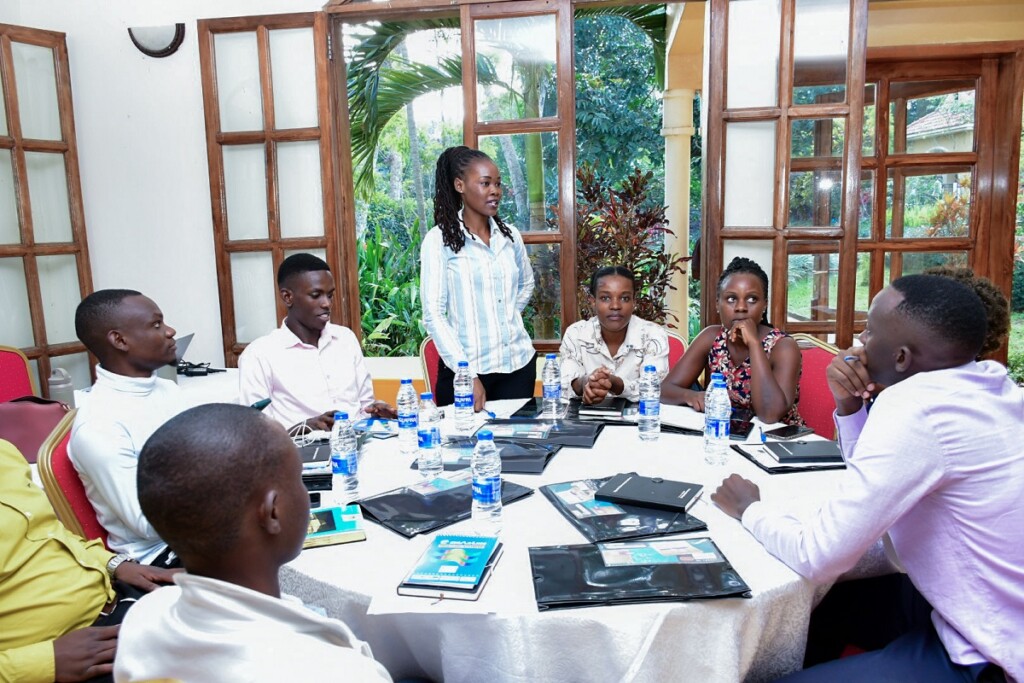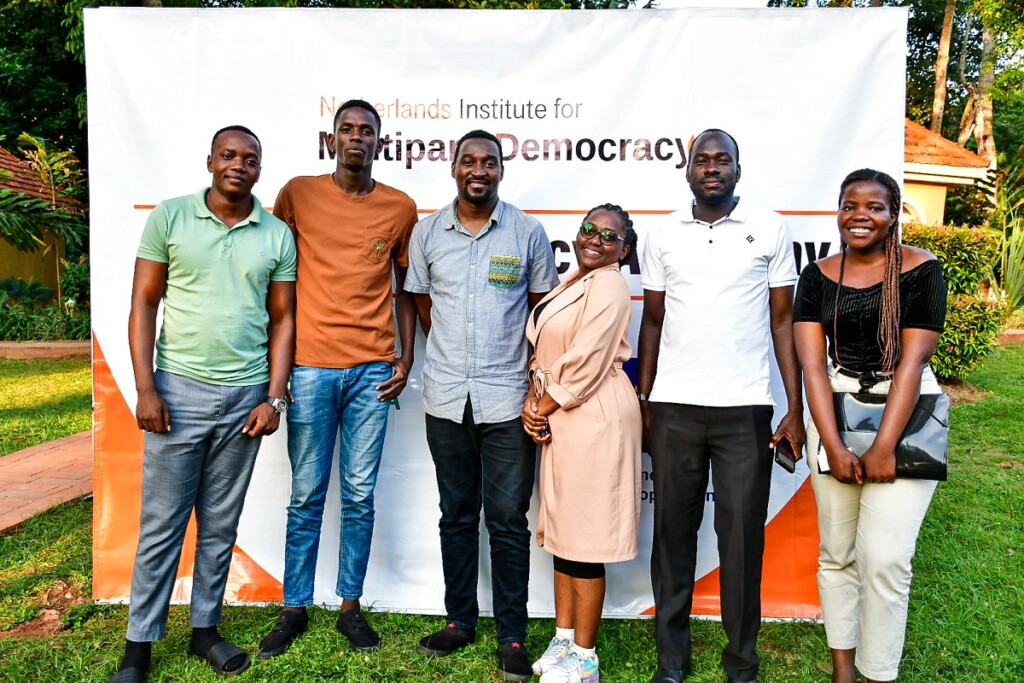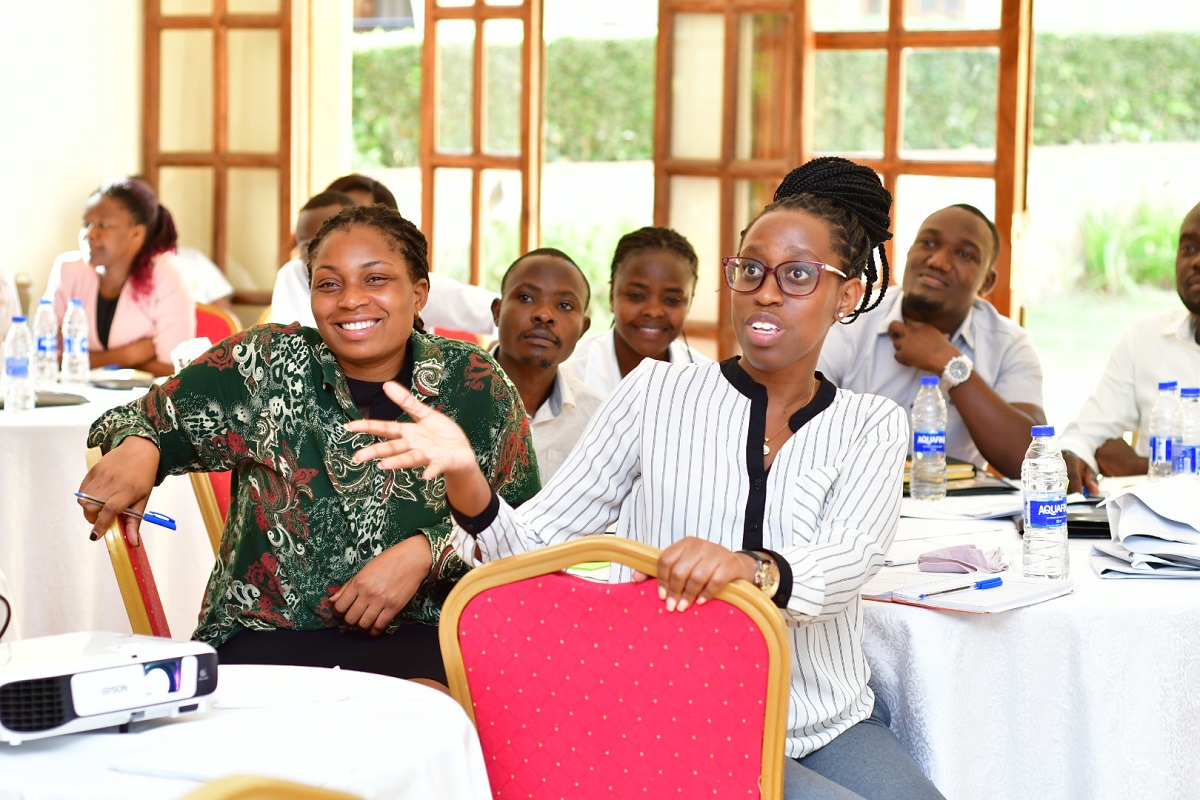Demo Finland participates in an EU-funded WYDE Civic Engagement programme in a project cluster led by the Netherlands Institute for Multiparty Democracy (NIMD). Under the project, NIMD Uganda has launched a Democracy Academy for young people in politics. Here, participants from different political parties and regions come together to develop the skills and knowledge of democratic political leaders.
The first cohort of 36 young politicians, who have finished the first semester this summer, are very excited. As one of the participants put it: “The well-structured programme, expert-led workshops, and engaging discussion have deepened our knowledge of democratic processes and fostered a greater sense of responsibility towards promoting democratic values within our communities.”
From a politics of noise to a politics of ideas
“The first few days are always a bit daunting for the participants”, says NIMD Director Primus Bahiigi. “They don’t know each other, and see each other as complete adversaries. That is why we include several extra-curricular activities in the programme, like sport games and outings. This group, for example, visited the island Kalangala in Lake Victoria, where the Academy sessions took place. After a tour around the island, they got to know each other and other young people from the island in a friendly football match.”

As a result of all these activities and trust-building, the communication within the group started to change. Within eight days, the narrative shifted from a politics of noise to a politics of ideas: the participants started to listen to each other and understand each other’s perspectives. General distrust made way for a culture of dialogue.
Primus Bahiigi: “This is exactly what we aim for. We want the youth to believe in themselves and understand that they play a pivotal role in building an inclusive and vibrant democracy in Uganda.” The participants got ample opportunity to reflect on their role during the module on leadership. They found it valuable that the session didn’t only centre around just leadership, but encouraged them to become democratic leaders, those who embody empathy, integrity and ethical politics.
The curriculum
The Uganda Democracy Academy curriculum is modular based and is delivered by Ugandan professional facilitators who are knowledgeable about the subject matter. The modules are based on the needs of the participants, identified through a pre-survey. The facilitators have undergone training to ensure active and creative adult learning, which involves group work, debates, lectures, personal stories and film. For the first semester, the participants focused on:
- Political theory and social contract
- History of political parties in Uganda
- Leadership
- Gender and disability inclusion
- Digital democracy
- Political communication and mass media
Two semesters of eight days
The Uganda Democracy Academy includes two semesters of eight days in retreat-style. The first semester was in July and the second semester took place in September 2023. Between the two semesters, the participants had a chance to put the lessons learned into practice with online sessions to guide them. At the second semester, they reflected on their experiences and attended more sessions on political theory, democratic processes and the political system in Uganda.

The Uganda Democracy Academy is implemented under the WYDE Civic Engagement programme, led by the European Partnership for Democracy (EPD), and funded by the European Union and co-funded by Akina Mama wa Africa.
The curriculum was created by NIMD Uganda in close collaboration with the Westminster Foundation for Democracy and Demo Finland. The Westminster Foundation for Democracy facilitated the session on the inclusion of gender and disabilities.
This article was originally published on NIMD’s website.


